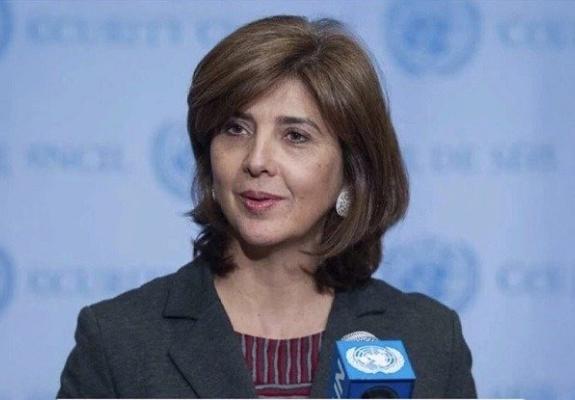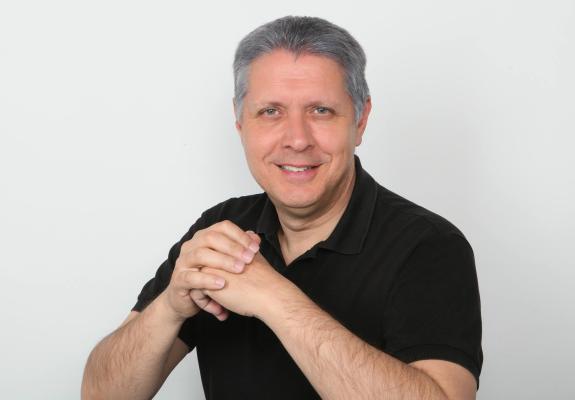Pressure From Greece for Cyprus’ Investment Participation in the Great Sea Interconnector
Cyprus is Currently the Last Non-interconnected EU Member
The Cypriot Government is facing political and economic pressure from Greece for its investment participation in the Cyprus-Crete-Israel electrical interconnection project. However, there is a strong emphasis on the need for detailed economic data that confirm beyond any doubt the economic viability of the project before giving the final "green" light, from the side of President Christodoulides, as well as from the Minister of Finance Makis Keravnos and the Minister of Energy Mr. George Papanastasiou.
The pressure is being applied to ensure the project, which has been approved by the EU for a 657 million euro subsidy to lift Cyprus' energy isolation, does not fail.
The Independent Electricity Transmission Operator (ADMIE) of Greece has taken on the role of project coordinator following recommendations from the EU, which identified a potential inability of "EuroAsia Interconnector" to secure the necessary funding for the project. However, there are questions as to whether the urgency presented from the Greek side is also due to obligations for the order and construction of the cable, other developments undertaken by the entity, and the payment of an amount of 48 million euros to the previous shareholder of the "EuroAsia Interconnector" who had undertaken the preliminary implementation of the project.
For ADMIE, it is important that the Republic of Cyprus provides state guarantees to secure a 580 million euro loan from the European Investment Bank. However, as Brief informs, the Government, through the Minister of Finance Makis Keravnos, is not willing to concede such a large amount that would mortgage the future of Cyprus, granting state guarantees for project financing without previous detailed studies or documents that demonstrate the project is viable and beneficial for the economy and the Cypriot taxpayer. The extraordinarily high state guarantees are not approved by the Ministry of Finance.
The pressures towards the Cypriot Government to accept the participation in the project and to finance part of it, are mainly invoked with the reliable, efficient, and green electrification of the country but also the possibility that Cyprus could lose the funding from the EU.
The Government, especially the Ministry of Finance, is not only concerned about the financial and organizational issues of the Great Sea Interconnector, the suitability and adequacy of the entities that will carry out the project, which is characterized as difficult and technically complex, but also poses the main question as to whether the project is useful for the economy and if the investment in a project with a total cost of 2 billion is justified.
Makis Keravnos, in statements with a strict tone, stated that "in a shareholding participation of Cyprus in the implementing entity of the Great Sea Interconnector, there is a recent relevant decision of the Council of Ministers, which represents the actual data and sets the safety locks for protecting the interests of the taxpayer".
-
Has a high investment cost
-
It holistically affects the energy strategy of the Republic of Cyprus
-
It creates socio-economic implications
As such, the Minister of Finance considers it necessary to carefully examine all aspects of it on the basis of independent studies and the cooperation of all involved for making the best decisions in the interest of the Cypriot electric energy consumer.
The managing director and president of ADMIE, Manos Manousakis, seeing the firm stance of the Minister of Finance and the Government of Cyprus, stated last week that "the first results of the cost-benefit study for the Cyprus-Crete interconnection will be ready in June".
Also, he implied that "ADMIE understands the desire of the Cypriot Government to have this study in their hands and to evaluate it before making their final investment decision to participate in the project, buying share capital in the company Great Sea Interconnector, which today is wholly owned by the Transmission Manager of Greece".
Moreover, the management of the entity is now ready to conduct the cost-benefit analysis (CBA) for the Cyprus-Israel electrical interconnection segment, so that the regulators of the two countries can allocate the cost that will be recovered from the regulated revenue (CBCA – Cross Border Cost).
ADMIE, the implementing entity of the Great Sea Interconnector project, a project currently estimated at 1.9 billion euros and designed to connect the electrical networks of Greece, Cyprus, and Israel, repeatedly states that it is in talks with the European Investment Bank for a loan of about 500 million euros.
Apart from the Aluma Fund from Israel and the TAQA Fund based in Abu Dhabi, which are presented as wanting to participate in the project, it also shows other investors from the wider region and the USA as interested in participating in the project, without anything concrete so far.
One of the potential participants, as implied, is Aluma (ALUMA), an Infrastructure Investment Fund listed on the Tel Aviv Stock Exchange (TASE) since November 2021.
According to research by Brief, the Mutual Investment Fund in Infrastructure was established in 2020, has developed an owner investment model in Israel based on three key principles:
-
The management of the Mutual Fund has a "practical" approach to target companies, which aims to increase the efficiency of their operations and improve their returns.
-
It chooses to give priority to investments in infrastructure companies over those companies that work on projects or businesses in the infrastructure sector, believing that this type of investment can yield higher returns.
-
It focuses on infrastructure sectors with the highest growth potential such as telecommunications, green energy, and the environment.
The second Fund, presented by ADMIE as interested in the project, is TAQA from Abu Dhabi with operations in the United Arab Emirates and beyond.
According to its official website, the Fund is characterized as a "champion" of the 10 integrated utility operations in the EMEA region with activities in energy, water, oil, and natural gas in 11 countries around the world.
TAQA was founded in 2005. However, it began its operation in 1998 with the privatization of the electricity and water sector of Abu Dhabi, recognizing the importance of water security and power supply to communities across all of the UAE. This move paved the way for the establishment of TAQA as a publicly traded company on the Abu Dhabi Stock Exchange (ADX) in 2005. Since then, it has evolved into a diversified company with activities in the UAE as well as in Canada, Ghana, India, Iraq, Morocco, the Netherlands, Oman, Saudi Arabia, the United Kingdom, and the United States.
As presented by ADMIE, the electrical interconnection project Greece – Cyprus – Israel will mark the electrical interconnection of Cyprus – the last non-interconnected EU member state – with the European transmission system, ensuring the strong energy shielding of the island.
Israel desires to participate in the project as it does not have any electrical interconnection with its neighbors, thus enhancing its supply security by gaining the ability to increase its participation in Renewable Energy Sources (RES) faster in its energy balance.
The project is supported by the EU with the pre-financing from CINEA (European Climate, Infrastructure, and Environment Executive Agency), from 55.2 million euros from the initial beneficiary (EuroAsia Interconnector) to 164.5 million euros, an amount that constitutes 25% of the total subsidy.






